- Home
- Suzanne Selfors
Fortune's Magic Farm
Fortune's Magic Farm Read online
Begin Reading
Table of Contents
A Preview of SMELLS LIKE DOG
Copyright Page
For my Isabelle—
seed collector, bug inspector, creature protector.
Acknowledgments
As usual, my deepest gratitude to my hand-holding, confidence-boosting, never-tiring writing group members: Anjali Banerjee, Carol Cassella, Sheila Rabe, Elsa Watson, and Susan Wiggs. How I would manage without them is beyond me.
Once again, heartfelt thanks to my editor, Jennifer Hunt; her assistant, T. S. Ferguson; and my literary agent, Michael Bourret, for their continued enthusiasm for my work. They do all the mysterious “business” stuff that I am happy to avoid.
And finally, thanks to you for venturing into this story about Isabelle and her magical journey. I loved every minute of writing and I hope you find her journey as fun and as satisfying as I did.
Isabelle stood beneath a sky as gray as a pair of filthy socks. A horde of factory workers pushed past her, eager to get home to their suppers. Having eaten only half a cheese sandwich for lunch, Isabelle ached with hunger, but she needed to run an important errand before going back to the boardinghouse—a secret errand that couldn’t wait.
“I can’t come with you,” said Gwen, who knew all about the secret errand because she was Isabelle’s best friend. “I’ve got stupid dish duty tonight. See ya in the morning.” She wiped her runny nose on her sleeve, then disappeared into the crowd.
“See ya,” Isabelle called, zipping her yellow rain slicker all the way to her chin. Poor Gwen. Dish duty was never fun, though secret errands almost always were.
Clutching an empty water bottle, Isabelle hurried away from Runny Cove’s Magnificently Supreme Umbrella Factory, where she had spent the entire day standing at a conveyor belt pressing labels onto boxes. Not the way most ten-year-olds would choose to spend the day, but Isabelle had no choice. Even though the work left her fingertips raw and made the soles of her feet ache, she never complained. Her boring job was the only reason she could buy half a cheese sandwich and a rain slicker. Without the umbrella factory, Isabelle would have nothing.
She followed the gravel road that led from the factory to the village of Runny Cove. Raindrops drummed against the sides of her plastic hood, a sound so commonplace that she barely even noticed. It rained every day in Runny Cove. It had for as long as Isabelle could remember. Sometimes the drops were as fat as thumbprints; sometimes they were almost invisible, forming a veil of mist. Sometimes they beat down so hard that they stung Isabelle’s skin, while other times they dropped lazily from the sky like parachutists.
Because the clouds never parted in Runny Cove, the village was perpetually cast in a depressing shade of sludge—the same color as the gunky stuff that clogs up bathroom sinks. Never had Isabelle basked in the sun’s warmth or strolled in the moon’s light. Never had she known what it felt like to be completely dry. That was the cruel reality of Runny Cove and that is why no one ever moved there. Isabelle couldn’t blame them. Who would want to live in a gloomy place by the sea where it never stops raining, and where everyone’s skin is puckered and pale and covered in mold?
While most of the villagers chose to sit around and complain about the mud, acting all dreary about the rain as if it had seeped inside their skin and had drowned their spirits, Isabelle’s spirit refused to be extinguished, no matter how waterlogged it got. Ever heard the saying that if you’ve got lemons, you should make lemonade? Well, when you’ve got mud you might as well make mud pies, or mud forts, or mud slides. And that’s exactly what Isabelle and her friends did. A lowly substance, mud, but with the right outlook it can offer up endless possibilities.
While the rest of the workers headed into the village, Isabelle took a sharp turn off the road and started across the sand dunes. Dusk was falling, but like everyone else in Runny Cove, she was accustomed to dim light. Up and over the dunes she went, her mind fixated on her secret errand. She needed to get it done quickly so she could get back to Mama Lu’s Boardinghouse for supper.
Up and over, over and up she hurried, slowing only to cough. People who spend their days in damp undershirts and wet socks tend to get colds, which is the reason why most everyone in Runny Cove had a runny nose and a rib-splitting cough.
Though the crisp evening air tickled Isabelle’s congested lungs, she kept her pace until she reached the driftwood forest. The logs lay in chaotic piles, some with sharp jutting branches, others with rotten patches that could break a leg. Isabelle had never seen a tightrope walker but she resembled one as she held out her arms and tiptoed across, still clutching the empty bottle. She didn’t feel a bit scared, since she had ventured to the beach many times by herself to explore or collect treasures. Excitement drove her onward. Her errand meant doing something different, something interesting, and she was one of those people who always managed to find bits of interesting in places where other people never looked.
As she crossed the driftwood, she sang one of her little songs at just the right tempo to match her careful steps. She sang loudly because there was no one around to yell, “Hey kid! Stop making all that racket. Yer giving me a headache!” Here’s what she sang.
The Nowhere Song
Beyond the town, beyond the mill
beyond the river, beyond the hill
lies the land of Nowhere
and Nowhere lies there still,
for no one goes to Nowhere
and no one ever will.
It was a song she had made up about the mysterious place of her birth. At least that’s what her Grandma Maxine had always told her whenever she had asked, “Where did I come from?”
“Nowhere.”
“Is it far away?”
“I don’t know. No one knows.”
As much as Isabelle loved her grandmother, the lack of information drove her crazy. A person has the right to know where she comes from. It’s a perfectly reasonable request, not like asking for a new rain slicker when the old one only has a couple of holes. Gwen knew about her parents. She knew that her mother had died giving birth to her and that her father had died from a fever. It didn’t make being an orphan any easier but at least Gwen knew. Isabelle knew nothing.
“You’ve got to know something, Grandma. Think harder and you’ll remember.”
“It’s no use asking me so many questions, Isabelle. All I know is that I found you one stormy morning. Nothing else. Just you, lying on the doorstep without a stitch of clothing, screaming so loud you drowned out the wind and rain. It seemed like you just appeared out of thin air.”
“But I must have come from somewhere.”
“As far as I can tell you came from nowhere, so please stop asking.”
A girl who begins her life on a doorstep, without a note or clue of any kind, has a choice. She can believe that she was abandoned because no one wanted her, and she can feel like the most unimportant person in the world. Or she can believe, as Isabelle did, that because her origins were shrouded in mystery, that she must be an extra important person. A special person. A person like no other person.
For a secret birth is like a secret errand—sure to yield something interesting.
Isabelle reached the edge of the driftwood forest and, with a graceful jump, landed in the hard, wet sand that lay at the water’s edge. The cove formed a crescent as gray as the sky above, littered with the hulls of long-abandoned fishing boats. Creosote-covered pilings poked out of the water, all that remained of the docks that used to line the beach. Grandma Maxine had told her that the boats used to go out each morning and return each evening, overflowing with fish. But no one fished the cove anymore, not since the fish had gone away.
Isabelle twisted the cap off the empty
bottle and waded into the water. As she submerged the bottle, air bubbles rose to the surface, bobbing between raindrops. When the bottle had filled, she recapped it and shoved it into her pocket. Her stomach growled. Mama Lu would be serving supper soon.
Her errand completed, Isabelle was about to start home when a roar rose above the rain’s drumming—a roar far too loud to be her stomach.
Something moved in the water where the cove met the sea. Isabelle pushed off her hood, trying to get a better view. The something was much bigger than she, and swimming toward her. She took a few steps backward as it moved closer. She’d never seen anything like it. Could it be dangerous?
She ran up the beach to the edge of the driftwood forest, where she watched, open-mouthed, as the large thing emerged from the shallow water. It was a creature of some sort, and it pulled its enormous, blubbery body onto the sand with a pair of front flippers. The strangest nose hung from the middle of its face, swaying back and forth as it heaved itself up the beach. She couldn’t see its mouth but imagined a vast row of sharp teeth. If it didn’t eat her alive, surely it would flatten her like a skipping stone. Terrified, she scrambled up some driftwood but lost her footing and fell back onto the sand.
ROARRRRR!
With a burst of speed, the creature galloped up the beach and parked itself at Isabelle’s feet. She froze, remembering that the fishermen who had fished the cove long ago had believed in sea monsters that sank ships and ate the crew.
Hot breath seared Isabelle’s face. Large black eyes, surrounded by folds of skin, stared down at her. “Please don’t eat me,” she begged, squeezing her eyes shut. Being eaten alive wasn’t something she wanted to watch. She waited for deep, horrible pain. But a few moments passed and nothing happened. Slowly, she opened her eyes.
Still staring, the monster cocked its head. Raindrops rolled down skin that looked like rubber. It sniffed her hair with its long nose.
“Please, please don’t eat me,” Isabelle whimpered, scooting back against the driftwood pile.
It raised its nose and opened its mouth. Isabelle squealed and pushed against the wood, hoping to find a spot where she could disappear. But she was trapped. She was going to die without having said goodbye to her grandmother or to Gwen. She was about to become supper! “Help!” she cried, though she knew no one would hear.
The sea monster took a great breath, then sneezed. The force of the sneeze knocked Isabelle sideways. Slime shot out the end of the dangly nose and landed in Isabelle’s short hair. Disgusting! “Cover your nose when you sneeze,” Grandma Maxine always said. But Isabelle wasn’t about to correct a sea monster’s manners.
“You can sneeze on me as much as you’d like. Just please don’t eat me.” She pulled on her hood as the creature took another breath and sneezed again. This time, something else flew out of its nose and landed with a thunk in Isabelle’s lap.
The creature tapped its flipper impatiently and grunted, as if waiting for something. The rain beat harder. Isabelle peered out from under her hood. She didn’t know what to do. What could it possibly be waiting for?
“Bless you?” she whispered.
It continued to stare.
“Bless you two times?”
The nose reached forward and pointed at Isabelle’s lap. She grimaced, expecting to find a giant booger, but found, instead, a slime-covered red apple.
A real, honest-to-goodness apple.
No apples grew in Runny Cove or in the wetlands that lay outside the village. Apples occasionally showed up at the factory’s grocery store, but only Mr. Supreme’s assistants could afford to buy them. Isabelle had never tasted one. She had never even held one. She picked it up. It would cost an entire day’s wages to buy one half the size. The sea monster grunted again. “Oh, I’m sorry. Here.” She held it out. Should she stick the apple back up its nose?
To her amazement, the sea monster shook its head.
“Don’t you want it back?”
It shook its head again. Then, with a roar that vibrated Isabelle’s teeth, it turned and made its way back to the water. It hadn’t eaten her. It hadn’t flattened her. It had only sneezed on her. “THANK YOU!” she yelled, waving the apple.
It turned and nodded, its nose bouncing up and down. Then, it swam out of sight.
“Wow,” Isabelle whispered.
Other than being left on a doorstep, that was the most special thing that had ever happened to Isabelle. Even though slime coated her hair and face, and even though she had been scared half to death, she smiled. Gwen would never believe it. Wouldn’t Grandma Maxine be surprised? No one in Runny Cove had ever met a sea monster. No factory worker had ever been given an apple.
She checked to make certain that the water bottle was safe in one pocket and tucked the apple securely into another pocket. Then she climbed onto the driftwood pile and ran back toward the village, feeling extra, extra special.
Water sloshed against Isabelle’s boots as she ran down Boggy Lane. The cobblestone lane dipped into the lowest part of the village, so it was always flooded. As her hood bounced at the back of her neck, rain washed all the sea monster snot from her face and hair.
Old, battered boardinghouses lined Boggy Lane. Lights glowed from kitchen windows. Greasy odors wafted through cracks in the house boards, aggravating Isabelle’s hunger pains. She wondered if the apple would be edible after traveling inside a nose. She plucked it from her pocket and held it beneath a gushing rainspout. Bigger and shinier than any apple in the factory store, she could have eaten it right there, but then she’d have no proof of her adventure. Besides, something that wonderful had to be shared.
Boggy Lane took a sharp turn, then ended at Mama Lu’s Boardinghouse. A vacancy sign swayed in the window, pushed by the wind and rain. No one had moved to Runny Cove for as long as Isabelle could remember, but Mama Lu still insisted on advertising. Isabelle ran up the stone steps and threw herself against the front door, which swelled in particularly nasty weather and needed a good shove to open.
“Yer late!” Mama Lu hollered from the kitchen.
“Sorry,” Isabelle called, closing the door. Of course, she didn’t regret her trip to the beach, not one bit.
The entryway felt chilly, as usual. The sour smell of boiled cabbage hung in the air. A frying pan sat on the floor, collecting water that dripped from a seam in the wall. Isabelle slipped off her boots and placed them neatly at the end of the boot shelf. She removed her rain slicker and hung it on the rack next to the other slickers. She decided to leave the filled water bottle in her slicker’s pocket and get it after supper. The apple, however, was another matter. Mama Lu liked to snoop through pockets and while she’d have no interest in a bottle filled with seawater, if she found the apple she’d claim it for herself.
“This house belongs to me,” she often reminded her tenants. “So everything in it belongs to me, too.”
Isabelle tucked the apple into the waistband of her canvas pants. Her flannel shirt, a hand-me-down from another tenant, was four sizes too large, so it did a good job concealing the lump.
“Did ya check fer slugs?” Mama Lu bellowed. The boardinghouse’s proprietor despised slugs. In fact, she hated them so much that the mere act of seeing one drove her into a tizzy. Unfortunately, Runny Cove possessed more slugs than any other place on earth. The little gastropods bred in every damp nook and cranny the village had to offer. They gobbled up anything the villagers tried to grow, leaving trails of slime in their wake. If a slug wanted to move across town, it would attach itself to a boot or pant leg when a villager walked down the street, or drop from an eave to hitchhike on a hood or in someone’s hair. Mama Lu had decreed that anyone who brought a slug into her house would lose blanket privileges for a month. “Did ya check?”
In all her excitement, Isabelle had forgotten to check. “Yes, I checked,” she lied, quickly sliding her hands through her hair.
“I hate those slimy things,” Mama Lu complained from the kitchen. “I hate their quivery antennas and t
heir squishy bodies.”
Isabelle entered the kitchen, where six tenants sat around a warped table, coughing and wheezing, sharing the same cold. Even though only two of the tenants were related by blood, everyone looked alike. In fact, most of Runny Cove’s villagers shared a similar appearance. Their skin, having never been exposed to the sun, was translucent, and their eyes were light blue. And every hair on every head was gray, even ten-year-old Isabelle’s hair. Some said that the dreary sky had fallen into their hair, but Isabelle’s grandmother said that everyone’s hair was gray because gray is the color of sadness.
In the boardinghouse, only Mama Lu looked different. She dyed her hair with an expensive paste that turned it as black as a beach rock. She had spending money, a luxury none of her tenants had. In exchange for most of their factory pay, the tenants got an uncomfortable twin bed, a cold breakfast, and a lukewarm supper.
Isabelle reached for a tray. “Sit down,” Mama Lu ordered. “Ya can feed yer precious granny when yer done.”
Isabelle squeezed in between Bert and Boris, the elderly toothless twins who lived in the basement. “Hello, Isabelle,” Bert whispered.
“Hello, Isabelle,” Boris whispered.
“Hello.” She liked to sit between the twins because they didn’t smell too bad, not like Mr. Limewig, who thought that with all the rain, he didn’t need to shower. The other tenants nodded, then, between coughs, slurped their soup. Mama Lu plunked Isabelle’s bowl and soupspoon onto the table.
“Yer a rude one, being so late,” Mama Lu said. “I’ve got better things to do than wait around fer you.”
“Sorry,” Isabelle said, knowing Mama Lu had nothing better to do.
“Sorry,” Mama Lu repeated in a whiny voice. “Sorry don’t mean nothing to my swollen feet.” She pointed to her feet, which were crammed into pink fuzzy slippers. Swollen or not, they sure looked enormous.
Isabelle dipped the wooden spoon into her bowl and sipped. The thin broth, a tasteless brew made from cabbage and carrots, was still a bit warm and it felt good going down. Isabelle would have voluntarily worked dish duty for just a dash of salt, but Mama Lu would let no one touch her salt. She considered salt to be a sacred weapon in her one-woman battle against the slugs of Runny Cove. She always carried a canister in her bathrobe pocket and would pull it out quick-draw style upon spotting a slug. It wasn’t a pretty sight when a slug got salted because the salt sucked all the moisture from the slug’s plump little body, leaving a puddle of goo. Isabelle hated it when Mama Lu salted slugs.

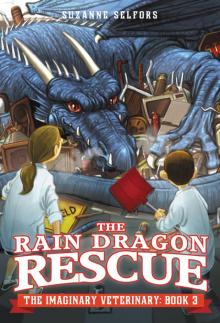 The Rain Dragon Rescue
The Rain Dragon Rescue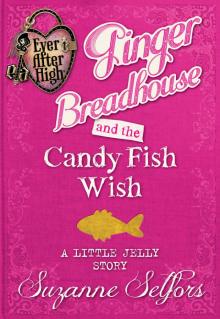 Ginger Breadhouse and the Candy Fish Wish
Ginger Breadhouse and the Candy Fish Wish Ever After High: Lizzie Hearts and the Hedgehog’s Hexcellent Adventure: A Little Shuffle Story
Ever After High: Lizzie Hearts and the Hedgehog’s Hexcellent Adventure: A Little Shuffle Story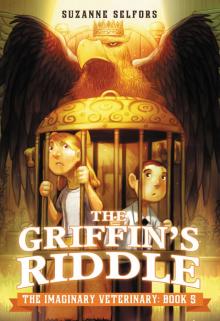 The Griffin's Riddle
The Griffin's Riddle Smells Like Pirates
Smells Like Pirates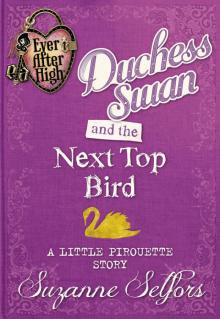 Duchess Swan and the Next Top Bird
Duchess Swan and the Next Top Bird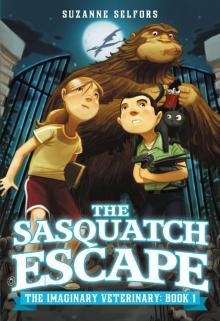 The Sasquatch Escape
The Sasquatch Escape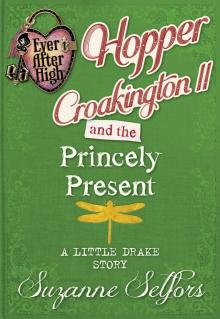 Hopper Croakington II and the Princely Present
Hopper Croakington II and the Princely Present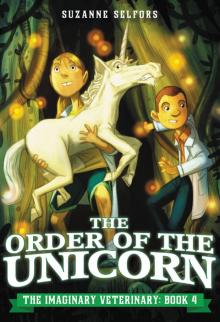 The Order of the Unicorn
The Order of the Unicorn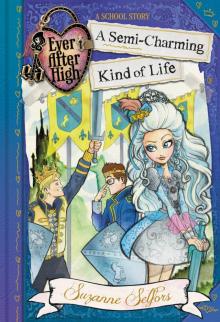 A Semi-Charming Kind of Life
A Semi-Charming Kind of Life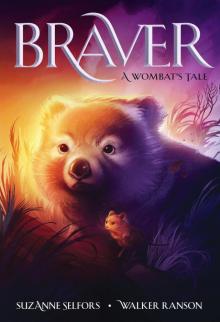 Braver
Braver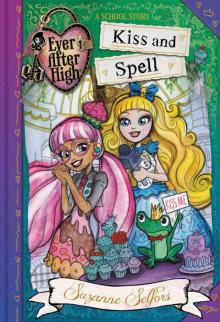 Kiss and Spell
Kiss and Spell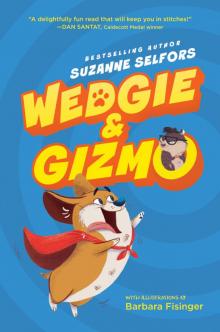 Wedgie & Gizmo
Wedgie & Gizmo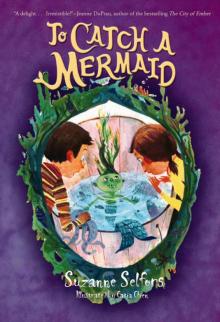 To Catch a Mermaid
To Catch a Mermaid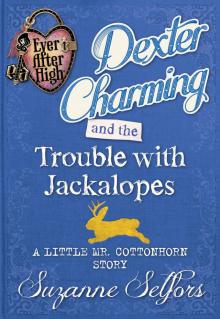 Dexter Charming and the Trouble with Jackalopes
Dexter Charming and the Trouble with Jackalopes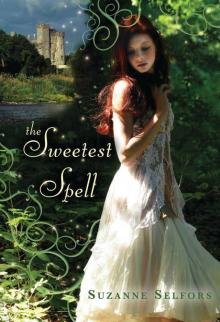 The Sweetest Spell
The Sweetest Spell CoffeeHouse Angel
CoffeeHouse Angel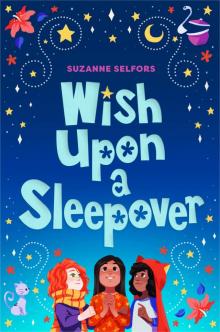 Wish Upon a Sleepover
Wish Upon a Sleepover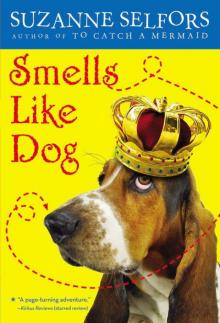 Smells Like Dog
Smells Like Dog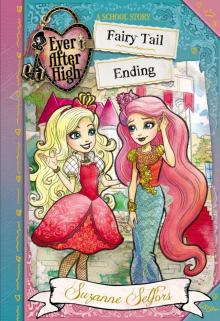 Ever After High
Ever After High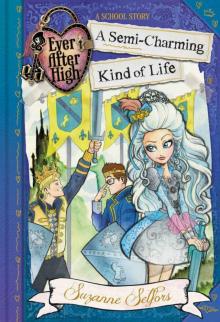 Ever After High: A Semi-Charming Kind of Life
Ever After High: A Semi-Charming Kind of Life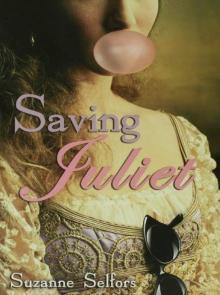 Saving Juliet
Saving Juliet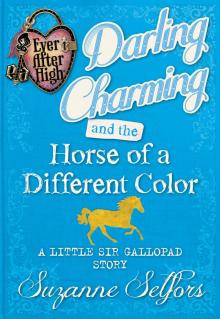 Darling Charming and the Horse of a Different Color
Darling Charming and the Horse of a Different Color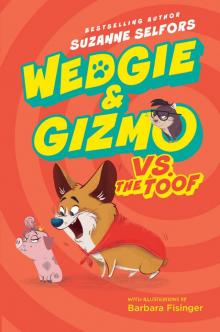 Wedgie & Gizmo vs. the Toof
Wedgie & Gizmo vs. the Toof Spirit Riding Free--The Adventure Begins
Spirit Riding Free--The Adventure Begins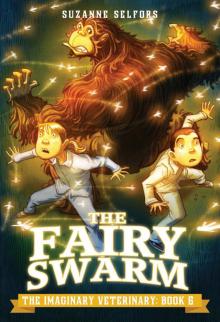 The Fairy Swarm
The Fairy Swarm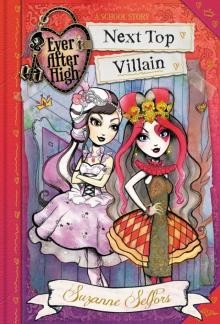 Ever After High: Next Top Villain: A School Story
Ever After High: Next Top Villain: A School Story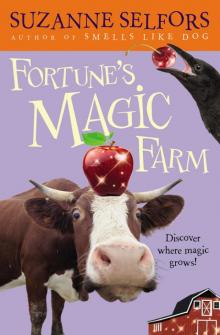 Fortune's Magic Farm
Fortune's Magic Farm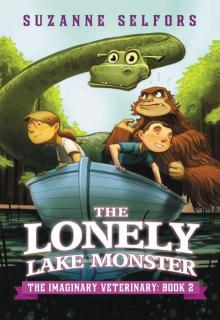 The Lonely Lake Monster
The Lonely Lake Monster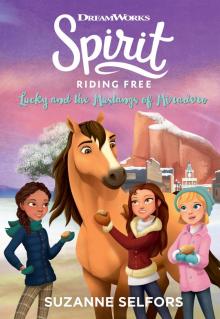 Spirit Riding Free--Lucky and the Mustangs of Miradero
Spirit Riding Free--Lucky and the Mustangs of Miradero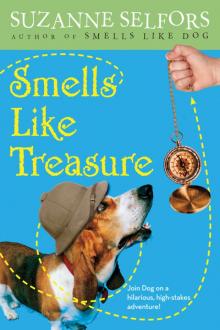 Smells Like Treasure
Smells Like Treasure Mad Love
Mad Love